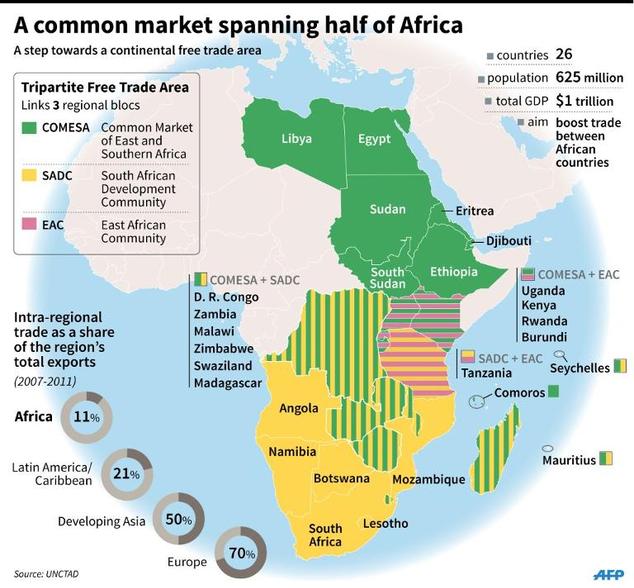The operational phase of the African Continental Free Trade Area, (AfCFTA), has been launched in Niamey, the capital of Niger.
AfCFTA will be governed by five operational areas, including, an online negotiating forum, a digital payments system, trade observatory, and monitoring and elimination of non-tariff barriers.
President Cyril Ramaphosa along with Rwanda’s Foreign Affairs Minister, Dr Richard Sezibera, launched the Tariff Concession Portal.
“The speedy entry into force of the AfCFTA is a source of pride for all of us”, said AU Commission Chairperson Moussa Faki Mahamat.
He described the free trade agreement as an instrument to achieve continental integration in line with the objectives of the Abuja Treaty and goals of Agenda 2063.

The Chairperson further highlighted the importance of peace building and security on the continent, adding that “it would be a delusion to talk of trade and development without peace and security.”
Egyptian President Abdel Fattah El Sisi, Chairperson of the AU, emphasized the need for the establishment of linkages with the private sector and the business and investment communities. He called on Africa’s youth to be involved as they will “continue the march” towards development.
United Nations Deputy Secretary General Ms Amina Mohammed said AfCFTA is a tool to drive growth and innovation in Africa while creating opportunities for sustainable development and realizing Agenda 2063.
AfCFTA will be one of the largest free trade areas since the formation of the World Trade Organisation, given Africa’s current population of 1.2 billion people which is expected to grow to 2.5 billion by 2050.
Ghana will host the secretariat of the AfCFTA getting the nod over over six other countries that had also expressed interest in hosting it.


